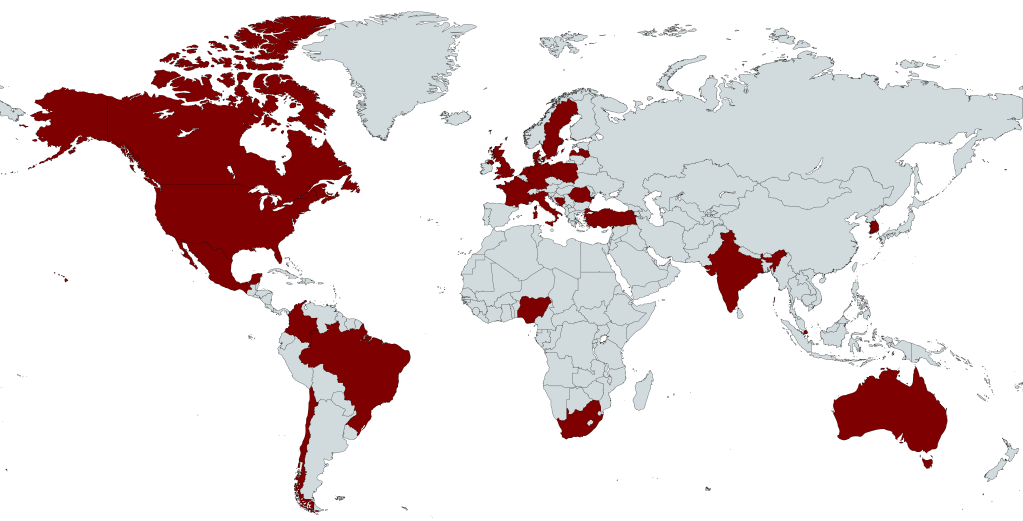Led by Steve Rathje, Nejla Asimovic, Claire Robertson, Tiago Ventura, Christopher Barrie, Joshua Tucker, and Jay Van Bavel
More than half of the world’s population uses social media. While much of research on social media has been conducted in the US and UK, emerging evidence suggests that social media might have very different effects on countries outside the US (Asimovic et. al, 2021; Ghai et. al, 2023; Lorenz-Spreen et. al, 2022). With social media’s massive global usage, it is crucial to examine the causal effects of social media on important psychological outcomes, such as polarization and well-being.
We plan to conduct a global field experiment across 23 countries (projected n > 8,000) to test the causal effect of social media on polarization, intergroup attitudes and well-being around the world. Similar to prior “global studies” conducted with the Center for Conflict and Cooperation, such as the International Collaboration on Social and Moral Psychology: Covid-19 and the International Collaboration to Understand Climate Action, we are collaborating with a large team of researchers from countries around the globe to conduct a cross-cultural field experiment.
In this global field experiment, participants will be incentivized to temporarily reduce their social media screen-time for 2 weeks. We will then examine how reducing social media usage affects their news knowledge, exposure to online hostility, intergroup attitudes, well-being, and a number of related outcomes (e.g., trust, political participation, belief in misinformation, etc.). The methods of the study will be modeled after prior social media deactivation studies (e.g, Asimovic et. al, 2021; Alcott et. al, 2020). We will also examine whether the effects of social media cessation are moderated by a number of country-level variables (e.g. income level, inequality, and democratic strength) and individual difference variables. This large-scale, high-powered field experiment, and the global dataset resulting from it, will offer rare causal evidence to inform ongoing debates about the impact of social media and how it varies around the world.
We have assembled a talented team of more than 200 researchers from around the world who are helping us conduct this global field experiment (countries featured shown map below). We have already run pilot studies in the US, UK and Brazil, and intend to begin primary data collection soon.
This study has been submitted as a registered report, which is currently under peer review. A registered report is a publishing format in which the study’s methods and analysis plans are peer-reviewed and accepted prior to data collection, with the goal of increasing transparency and reducing publication bias.
This project is funded by the National Science Foundation, the Templeton World Charity Foundation, and a “seed grant” from New York University.

